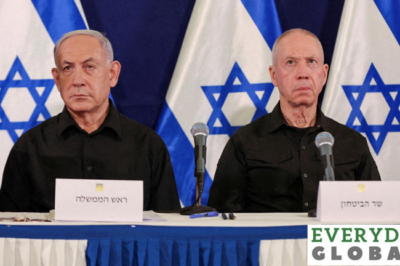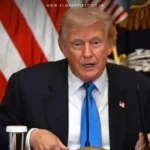
Key Highlights
- The International Criminal Court (ICC) has issued arrest warrants for Israeli Prime Minister Benjamin Netanyahu and former defense minister Yoav Gallant on charges of war crimes and crimes against humanity.
- Accusations include intentionally depriving Gaza’s civilian population of essentials like food, water, and medical supplies during the October 2023–May 2024 conflict.
- If Netanyahu or Gallant travel to any of the ICC’s 124 member states, these countries are obligated to arrest and extradite them to The Hague.
How Did the ICC Get Involved in This Case?
The ICC, headquartered in The Hague, prosecutes individuals for severe international crimes such as genocide and war crimes when national systems fail to act. While Israel is not a party to the ICC’s founding Rome Statute, Palestine is, allowing the ICC to assert jurisdiction.
The charges against Netanyahu and Gallant stem from allegations that they intentionally deprived Gaza’s civilians of basic necessities, resulting in immense suffering. The court also accuses them of overseeing acts of violence, torture, and destruction by Israeli forces. These allegations were bolstered by referrals from nations like South Africa, Bangladesh, and Chile, drawing global attention to the situation in Gaza.
What Happens Next?
Although the ICC’s decisions are binding, enforcement depends on member states. If Netanyahu or Gallant enter any of the 124 member countries, they could face arrest. However, allies like Germany, France, and the UK, which are ICC members, may be hesitant to act given their historical support for Israel.
The warrant’s significance lies more in its symbolic weight, intensifying international pressure on Israel and serving as a diplomatic victory for Palestine. Netanyahu’s ability to travel internationally may now be restricted, complicating Israel’s global engagements and drawing further scrutiny to its actions.
Conclusion: A New Chapter in International Accountability
The ICC’s move underscores the growing importance of international law in addressing alleged human rights violations. While practical enforcement may be challenging, the arrest warrants mark a critical step toward holding leaders accountable and fostering dialogue on the need for justice and peace in conflict zones.









































Leave a Reply